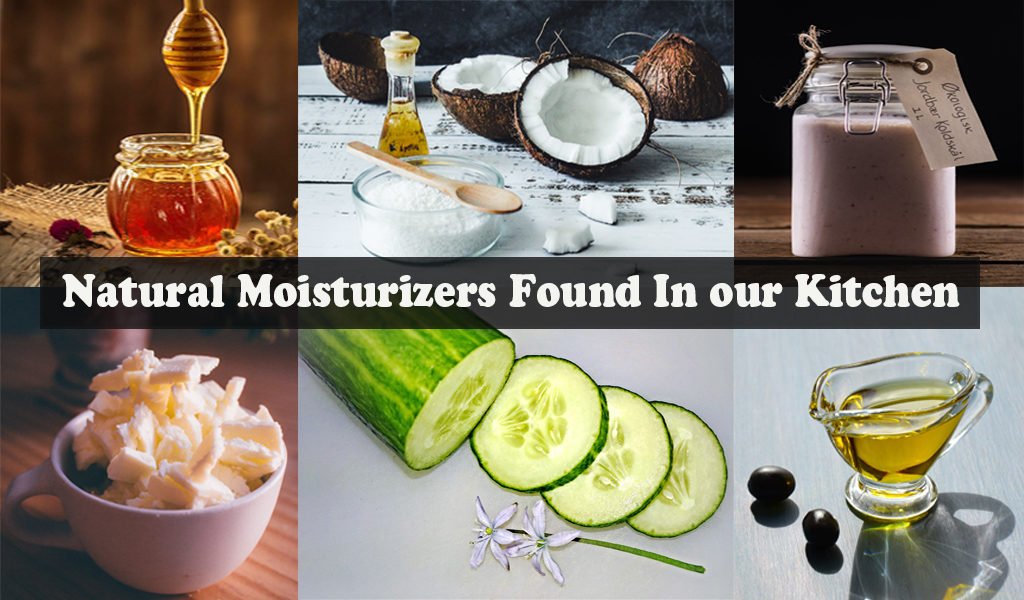While we look at the ingredient lists on any of our favourite natural skin care products, we will probably notice a lot of components we already have in your cupboard. For some very good reason, many of the same nutrients that we consume to nourish our body are also beneficial when applied topically. So, if you want to try out a new Sunday night mask or make your own body oil, you will most likely find everything you need completely at home or at a local supermarket.
And just don’t accept our word as it is, there is evidence to back up these statements. Some of our scientifically proven favourites are listed below:
1. Honey
Honey, and perhaps even better, Manuka honey, is one of the most multipurpose ingredients in our kitchen. According to a study, raw, organic honey contains antibacterial qualities, that can help heal skin rashes and is anti-inflammatory.
Home Remedy: Manuka honey has lately acquired prominence as a face wash: Apply it to wet skin and wipe it away with a warm towel. You may also use it once a week as a healing mask by applying a thin layer to clean skin and leaving it on for about 10 minutes before washing it off with some warm water.

2. Sunflower seed oil
According to research, this is one of your best natural solutions for increasing barrier function. The linoleic acid-rich oil enhances skin hydration and lipid production without causing irritation. It has also been demonstrated to be non-comedogenic.
Home Remedy: If you prefer lighter oil for a face wash, especially if you have acne, the sunflower seed oil is great; in fact, it is found in many popular oil face washes. You may also apply it to moist skin as a mild body oil.
3. Olive oil
Olive oil contains a high concentration of vitamin E, an oil-soluble antioxidant that is commonly used in anti-ageing treatments. This helps minimize oxidative stress on the skin and hair when applied topically. According to research, vitamin E makes it extremely anti-inflammatory for skin that has suffered free-radical damage from sun exposure. Moreover, studies suggest that if you are prone to eczema, regular use might aggravate the skin problem.
Home Remedy: Because of its high antioxidant content and ability to remove even the most tenacious makeup, organic, virgin olive oil is a go-to for all-natural oil washing. Even if you don’t want to wash with oil, one drop per eye is a fantastic makeup remover.
4. Coconut oil
This fashionable home essential is used for everything from natural lip glosses and hair treatments to Ayurvedic oil pulling. The oil is high in fatty acids, which give it antimicrobial characteristics, aid in collagen synthesis, and can increase moisture levels and barrier performance. People also prefer it because it absorbs better than other, heavier oils, its monounsaturated fat, which has greater dermal permeability rates. However, in certain people, coconut oil has been proven to be comedogenic and pore-clogging. It is also strong in lauric acid, which can build up in the top layer of the skin without entering, making the skin drier over time if used excessively.
Home Remedy: It works well as a foundation for most DIY cosmetic products, such as a moisturizing body scrub with sea salt.

5. Buttermilk or yoghurt
Lactic acid, found in fermented dairy products, is popular among beauticians and dermatologists for its mild exfoliating and moisturizing characteristics. They also have a lot of good-for-your-skin microbiome probiotics, which according to current studies can be excellent for acne-prone skin whether taken orally or topically. The combination of these two actives results in excellent skin treatment. Natural yoghurt masks increased skin hydration, elasticity, and brightness, according to one research.
Home Remedy: First of all and essentially, choose organic, no-sugar-added choices. From it, you can create a number of masks using yoghurt as a base of a brightening mask.
6. Cucumber
Although there hasn’t been as much study into the vegetable’s skincare advantages, there’s a reason it’s so popular in spas: it may be quite calming for fatigued or irritated skin. Not only is the juice’s high water content hydrating, but studies show that the other nutrients in the juice may also help decrease swelling.
Home Remedy: When you have time in the morning, ignore the jade rollers and frozen spoons in favour of an old-school technique: put two cooled slices over your eyes to de-puff and invigorate the skin.
7. Castor oil
This oil is most known as a haircare favourite—many people think it promotes hair growth anecdotally, although there is no study to back this up. Regardless, it’s an excellent moisturizer for hair and the body since it contains humectants, which pull in water.
Home Remedy: Use it as a body moisturizer or hair oil at home (most people will find it too thick as face oil). However, another typical application is combining it with olive oil to produce a DIY oil cleanser—castor oil contains triglycerides, which help it dissolve the grime.
8. Almond oil
This is an excellent body moisturizer. In one study, this moisturizer is been demonstrated to help minimize the appearance and creation of stretch marks. It has also been found to have photoprotective properties on the skin since it can help prevent the damage caused by photoaging.
Home Remedy: You can make quite good body oils with only a few simple ingredients, like this lavish-yet-cheap recipe.

9. Rose water
If you chance to obtain a bouquet of roses, it will make rich rose water, which you can use as a hydrating toner pre-oil or during the day as a mist, the latter of which was investigated in 2014, and the researchers discovered that mists may work as an excellent moisturizer throughout the day.
Home Remedy: First, dry your organic roses and collect enough to form a quarter cup. Bring a cup and a half to a boil before reducing to low heat. Add the roses and “cook” until the petals have lost their entire colour. Drain into a jar and place in the refrigerator. Just use it up within a month, and keep in mind that because it has no preservatives, it would not have the same shelf life as shop-bought.
10. Oat
Oat, oat powder, and soluble oat are popular ingredients in sensitive skin care products because they are soothing to inflamed skin. According to research, this is owing to its anti-inflammatory and antihistamine characteristics, which is why it is frequently used to ease atopic allergic responses.
Home Remedy: Try soaking in a soluble oat bath or oats finely powdered that dissolve in water, which is very beneficial for irritation caused by dry skin. Add 1 cup of oats to your warm bath water, for a refreshed shower.
11. Shea butter
Shea butter, which is high in triglycerides, is a good emollient that may help skin retain moisture. This butter concentrate has even been demonstrated as an anti-inflammatory. And one research even claims that it has topical properties comparable to ceramides, which are commonly utilized in high-end skincare products.
Home Remedy: Because it has a rich texture, we recommend using it topically as intense hand cream or on your legs after shaving. You can also use the butter as a base to produce some really amazing lip products.
12. Aloe Vera
For a reason, this is the take for sunburns and soothing gels. It is strong in vitamins A, C, E, and B12, which help minimize free radical damage; it also includes anti-inflammatory enzymes. Most people like it because of how readily it absorbs into their skin, which is owing to the high water content; the gel is roughly 90% water.
Home Remedy: The most common and simple way to utilize the plant is to simply slit open a leaf and apply the gel topically? Apply it to a minor burn with one drop of pure lavender essential oil. And the unusual fragrance of raw Aloe Vera is stronger than you may imagine.

13. Avocado and avocado oil
Because of its abundance of waxes, minerals, proteins, and vitamins, this lunchtime favourite is a skincare saviour, with research indicating that it may be a nutritious antioxidant treat for the skin. Also worth noting is that avocado oil, which is produced from pulp, has been found in one research to boost collagen production.
Home Remedy: There are several at-home avocado mask recipes available, many of which include additional ingredients on this list, such as honey, yoghurt, and oats. A half avocado, mashed, is a nice starting point.
Most effective Methods of Maintaining Moisture Balance for the Skin
Maintaining skin hydration not only keeps it appear younger and healthier but also lowers the risk of premature ageing. There are various methods for reintroducing moisture into the body from both the inside and outside. Here are some pointers to help you keep your skin’s moisture balance in check.
1. Drinking water
Although it may appear simple, many individuals do not drink enough water during the day, which may rapidly lead to dehydration, which causes the skin to appear dull and dry. Drink about eight glasses of water of 8-ounce each every day to stay hydrated. To make a spritz, add fruit or cucumber to water.
2. Hydrating foods
The skin can be moisturized both on the inside and on the outside. This can be effectively done by consuming meals with high water content. Celery, watermelon, cucumber, bell peppers, berries, peaches, and plums are examples of such foods. Consume them throughout the day to keep your skin hydrated.
3. Moisture-boosting cream
There are several natural moisturizers available in the market today, but not all of them are made equal. Women seeking a cream to replace their skin’s hydration should look for components that attract moisture. Hyaluronic acid, glycolic acid, lactic acid, and Aloe Vera are examples of these.
4. Honey for help
Honey not only has antimicrobial effects but also cleanses and moisturizes the skin. Applying a honey face mask can help to soften rough and uneven skin and make it shine. Allow raw honey to stay on your skin for 30 minutes before rinsing with lukewarm water. It is suitable for use on dry spots on the elbows and knees, as well as on the face.
5. Minimize Soap Use
Many soaps have harsh chemicals that can deplete the skin’s hydration and natural oils. Soaps having deodorants, alcohol, or perfume should not be used. Cleansers that are soap-free are gentler on the skin than soaps.

6. Exfoliate often
Exfoliating is necessary because it aids in the removal of dead skin cells, which is especially crucial during the winter months. Moisture cannot penetrate the skin if dead skin cells obstruct it. A little exfoliating scrub or mask should suffice. Moisturizing immediately thereafter should rehydrate the skin.
7. Limit bath timings
This does not imply compromising on personal cleanliness. However, spending too much time in the bath or shower might dehydrate your skin. Bath or shower for no more than five minutes once a day. To avoid moisture loss, make sure the water is lukewarm rather than boiling
8. Bath with oatmeal
An oatmeal bath is excellent for skin moisturization. Coarse oatmeal is anti-inflammatory and anti-oxidant. Not only can oatmeal assist to smooth your skin, but it will also relieve irritation. Moisturize right away to seal in the results.

